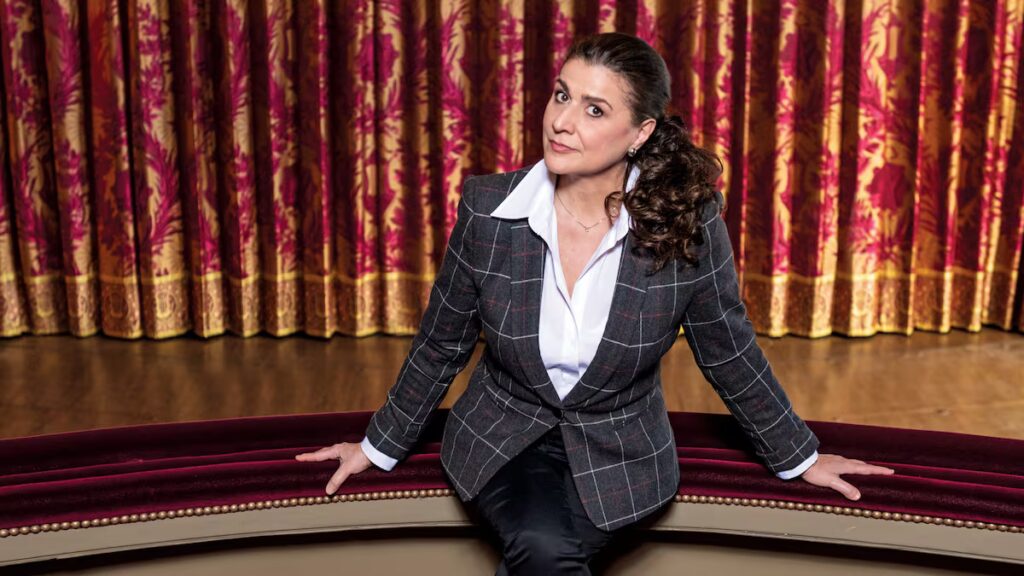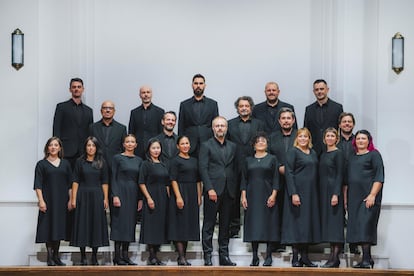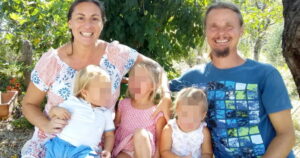
Cecilia Bartoli (Rome, 59 years old) has spent four decades rummaging through repertoire drawers, from where she recovers forgotten scores or returns to known works to propose a new way of listening. His latest project, the opera Orpheus and Eurydice, by Christoph Willibald Gluck, who is taking him on tour in Spain these days, is halfway between discovery and reclamation. “There is something revolutionary in this music that breaks the mold of tradition and moves us to tears,” says the half Italian, one of the great world protagonists of current poetry. “Gluck does not seek ornamentation or artifice, but rather purity of expression,” he says. “And that’s why it hasn’t lost a shred of modernity.”
An explanation of the operatic reform brought about by the Viennese premiere of Orpheus and Eurydice In 1762 we find it in the «dispersed origins and destinies» of its author: «Born in Bavaria, educated in ancient Bohemia, Italianized in Milan, active in Vienna and consecrated in Paris, he was neither entirely Austrian nor German», explains the singer. “This independence from all these influences, which he knows perfectly, led him to eliminate all unnecessary ornaments: he gave up dry recitative and adopted a cleaner vocal line in which the strength and fragility of humanity coexist.” The result, he assures, is a “new language that reaches the heart without intermediaries”.
It was something he learned, 25 years ago, while recording Gluck: Italian arias (Decca), album which investigates the relationship that the composer had with the writer and poet Pietro Metastasio. “The songs on the album, many of which were unreleased, allowed me to discover Gluck’s disarming purity.” That first discovery was followed by other archaeological investigations (Farinelli, Malibran, Pasta, Vivaldi…) marked by the same obsession: “Returning to the sources, working with original instruments and recovering a lost sound. Without that first Gluckian adventure I would not have been able to reach the essence of this Orpheus “so demanding.”
Tired of the whims of the stars, the demands of the public and the excesses of baroque opera, Gluck proposed, and left it written, “to ban all the abuses introduced by the virtuosos of singing and by the vain complacency of the composers”. And even so he had time to adapt his Orpheus to Italian vocal taste with a second version, always at the service of transparency and simplicity, carefully prepared by him before its premiere in Parma. “In 1769 he revised the work to adapt it to the voice of Giuseppe Millico, a castrato with a more sopranile tessitura, which led him to introduce another series of changes to the score, which acquired its color and brightness.”
It will be the Parma version that will be performed at the Palau de la Música in Barcelona (Wednesday), at the National Auditorium in Madrid (27 November) and at the Teatro de la Maestranza in Seville (29). It will be a semi-scenic concert in which Bartoli will dress up as Orpheus accompanied by the specialized musicians of Les Musiciens du Prince-Monaco, directed by maestro Gianluca Capuano, by the Il Canto di Orfeo choir and by the soprano Mélissa Petit (Eurídice). “I haven’t had time to check it, but it’s possible that it’s the first time this version has been heard in Spain,” he says of the production, which will later travel to Austria, Hungary and Monaco.

In 2023 Bartoli becomes the first woman to assume the artistic direction of the Monte Carlo Theatre. “It was one of the great challenges of my career, and I think I would not have accepted the job if it were not for my years of experience leading the Salzburg Whitsun Festival,” which under his tenure opened up to riskier proposals in the field of historical restoration. “In Monte Carlo the programming aspires to a balance between the great repertoire, especially Italian, and the works written for this theatre. Many do not know that our Salle Garnier debuted The swallow by Puccini and Don Quichotte by Massenet. How does it stay?”
In February she will play Despina there That’s what they all do, by Mozart, with which he made his first appearance at the Met in New York. “It’s a fun role, but it involves great technical complexity, absolute masterpiecea true miracle.” And now, in December, the Monte Carlo Opera will dedicate several performances to the musical cats, by Andrew Lloyd Webber. A sacrilege? “Not at all, far from it. It’s a perfect title for Christmas. We brought it two years ago The Phantom of the Opera and we sold out all the tickets. cats It is a work full of magic and poetry, with a philosophical background that does not always come to the surface, but it is there and we need to know how to exploit it.”
What no one doubts is his more than proven harmony with Händel, a territory he has not yet finished exploring: “I would like to debut with AgrippinaNero’s mother, whom I carry in Roman blood… And also, why not, the queen Rodelinda. “Everything will work out,” he acknowledges. In addition to running a foundation in his name with which he promotes the careers of promising young opera artists, Bartoli is also president of Europa Nostra, the largest civic network dedicated to defending the continent’s cultural heritage. “We live in a very politically delicate moment,” he reflects. “Music reminds us of who we are, but above all it forces us to listen.”





